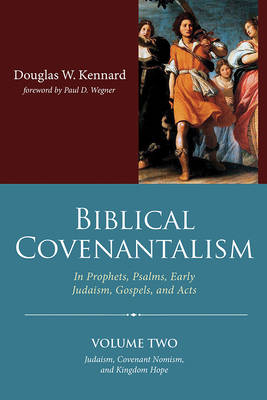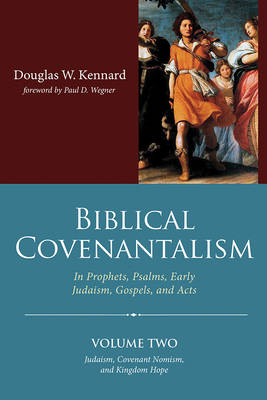
- Afhalen na 1 uur in een winkel met voorraad
- Gratis thuislevering in België vanaf € 30
- Ruim aanbod met 7 miljoen producten
- Afhalen na 1 uur in een winkel met voorraad
- Gratis thuislevering in België vanaf € 30
- Ruim aanbod met 7 miljoen producten
Zoeken
Omschrijving
VOLUME ONE: Biblical Covenantalism in Torah: Judaism, Covenant Nomism, and Atonement VOLUME TWO: Biblical Covenantalism in Prophets, Psalms, Early Judaism, and Gospels: Judaism, Covenant Nomism, and Kingdom Hope VOLUME THREE: Biblical Covenantalism in New Testament Epistles: Engagement of the New Perspective and New Covenant Atonement Biblical covenantalism is the backbone of the Old Testament and the root of salvation and ethics. This book offers a nuanced exploration of biblical theology with an emphasis on how biblical covenants set a complex trajectory for Israel's covenant relationships, salvation, ethics, and eschatology. Suzerainty treaty form positions the Mosaic covenant in a Deuteronomistic framework that elects Israel and rewards them with blessings based upon obedience to the stipulations of the covenant within which God has embraced them. Such a framework fits within covenant nomism (law), especially considering the majority of the stipulations' similarity to ancient Near Eastern law codes. This perspective deepens awareness of biblical trajectory in interaction with early Jewish and Christian sources. Jewish metaphors inform Old Testament, rabbinic, and Messianic atonement. This view positions itself between the New Perspective and traditional Reformation views as well as Covenant theology and Dispensationalism, even as it distances itself from American Covenantalism, Theonomy, Natural law, and the prayer of Jabez. The biblical and second temple Jewish material provides a nuanced new perspective of Judaism. From this same covenantal root, the Biblical covenants ground an eschatological hope for the nation of Israel.
Specificaties
Betrokkenen
- Auteur(s):
- Uitgeverij:
Inhoud
- Aantal bladzijden:
- 264
- Taal:
- Engels
Eigenschappen
- Productcode (EAN):
- 9781666732733
- Verschijningsdatum:
- 1/11/2021
- Uitvoering:
- Paperback
- Formaat:
- Trade paperback (VS)
- Afmetingen:
- 152 mm x 229 mm
- Gewicht:
- 358 g

Alleen bij Standaard Boekhandel
+ 91 punten op je klantenkaart van Standaard Boekhandel
Beoordelingen
We publiceren alleen reviews die voldoen aan de voorwaarden voor reviews. Bekijk onze voorwaarden voor reviews.








